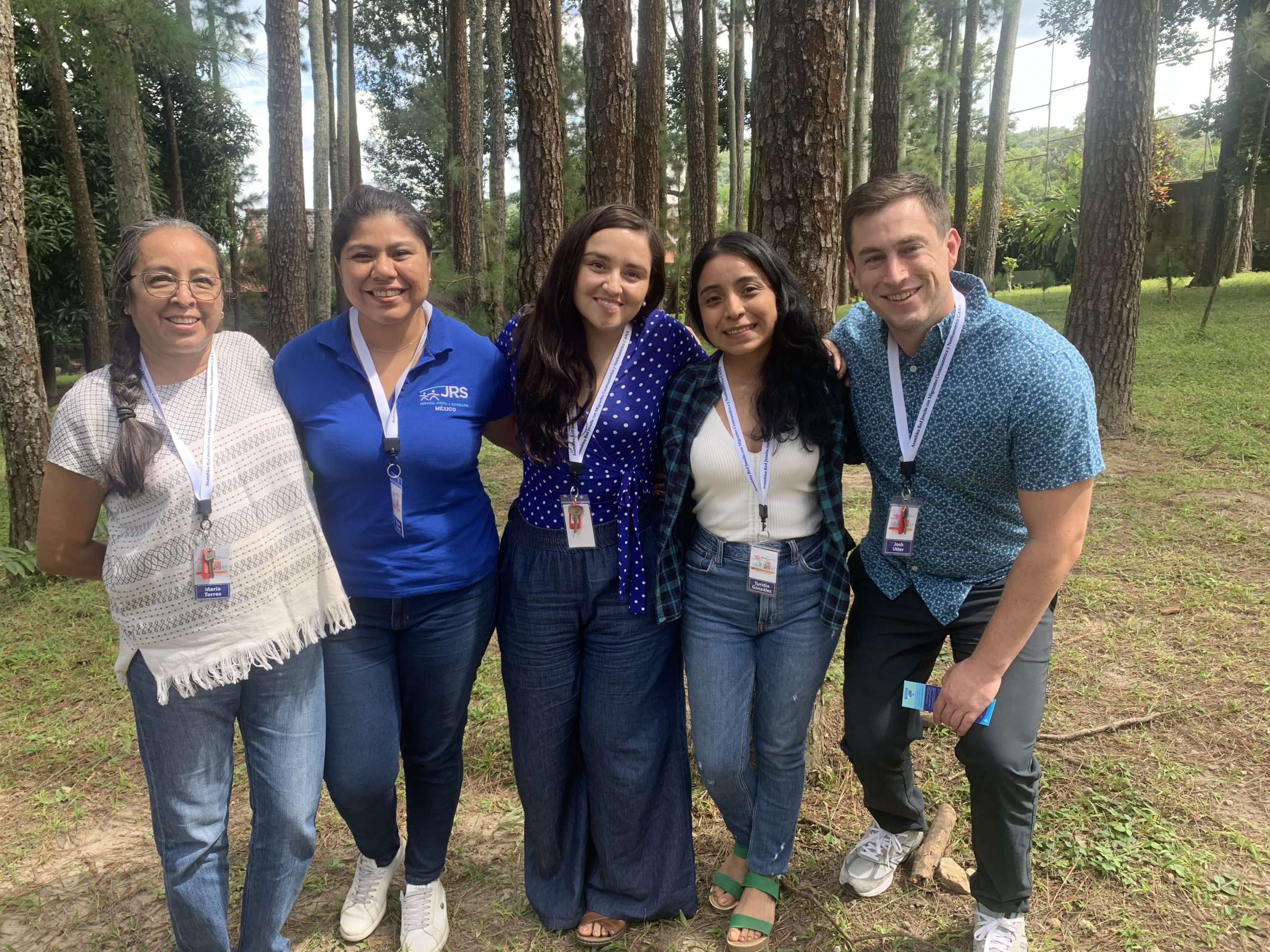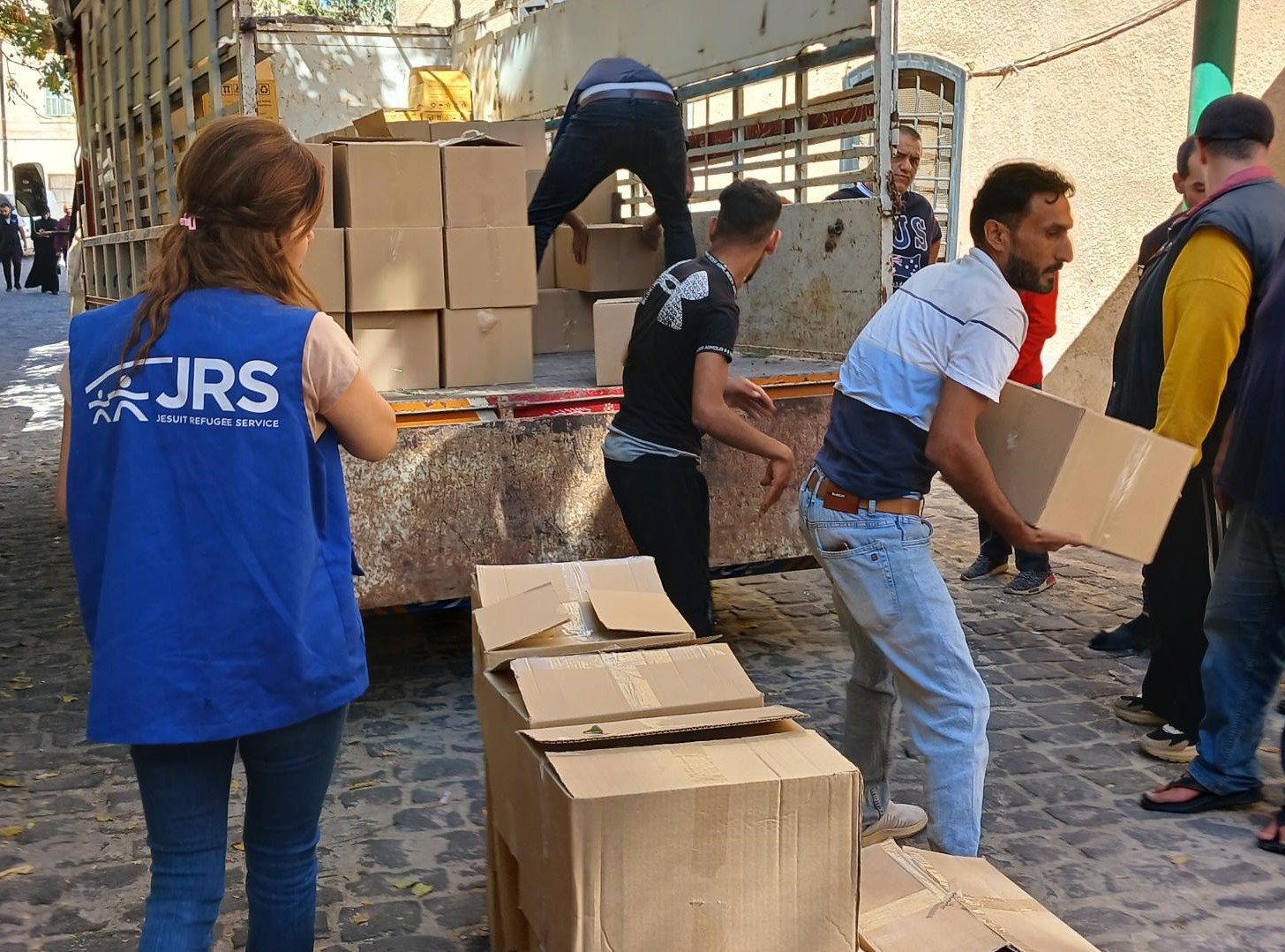The Oklahoman: Foreign aid could help people stay in their home countries. Why cut it?
29 March 2025|The Oklahoman, Opinion - JRS/USA President Kelly Ryan
For the preservation of life and safety, people need the freedom to migrate. Equally important is the right to stay.
People from around the world still flock to Oklahoma with the spirit that drove the Sooners. Many Oklahomans are immigrants ― 6.1% according to USAFacts. They help power the state’s economy and invigorate its communities. They arrive seeking what people have pursued for millennia: the right to live and work in peace.
Their right to migrate is now at the center of our political discourse. While some call for an end to immigration, Pope Francis has articulated, along with other human rights advocates, that people have a right to migrate, particularly in the face of threats to their lives. But in all the heated rhetoric about the border, we can overlook something equally important: the right to stay and be able to build a future in the place you call home.
It is key to understand why migration happens in the first place. For many, circumstances in their home country are so intolerable that leaving is not a choice. Their families are not safe. They take on grave dangers just to escape, such as hiking through the perilous Darién Gap between Colombia and Panama with children in tow. Many face persecution, threatening their religious and physical liberty, as in the case of 11 priests detained last summer in Nicaragua, where authoritarian President Daniel Ortega has cracked down on any dissent and has been especially harsh to Christian leaders.
Foreign aid should help people thrive in their home countries
Despite the perilous circumstances they will endure for a better life, an overwhelming majority of people would rather not migrate. The current review of foreign aid must take into consideration the financial and humanitarian benefits of helping foster conditions that improve people’s lives in their home countries to prevent them from leaving. Effectively implemented aid can impart a sense of rootedness and confidence that people can build their lives at home. Often, that is enough for them to stay.
I recently co-authored a report in the Journal of Migration and Human Security on the experiences of 17 community-led organizations in Central America, examining how they contributed to income generation, education, and civic engagement ― factors associated with greater likelihood of remaining in one’s country. Much of these organizations’ effectiveness derived from locally-led efforts to develop youth with self-confidence, marketable skills and connection to their communities. This approach influenced many to remain in their home countries instead of migrating to the U.S.
In recent weeks, increased scrutiny of government grants has brought to light some wasteful programs taxpayers have subsidized. Unfortunately, their failures have tainted the positive work being done by many organizations whose dedicated staff seek to advance human dignity while promoting American policy priorities.
My organization, Jesuit Refugee Service, receives State Department funding due to the quality of our work around the world. Like many organizations, we are remarkably cost-effective, with 92 cents of every dollar going directly to aid. This focus on mission helps us effectively serve people trying to live in safety and prosperity at or closer to home.
U.S. leaders must see necessity of foreign aid
Foreign assistance accounts for less than 1% of the federal budget. That number surprises most people. These expenditures are highly impactful when carried out by faith-based organizations that enjoy trust and are firmly rooted in communities. While we are dismayed that some life-saving programs have been temporarily halted by the State Department and could be permanently defunded, we remain hopeful that our country’s leaders will see the wisdom of funding the many that redound to both our country’s benefit and the benefit of those served.
While some have questioned the goals and motivations of humanitarian organizations, most of us who do this work would prefer to be out of business; we wish the circumstances forcing migration would end. Sadly, between 2018 and 2024, the global population of refugees grew 46%, to 37.9 million, according to the United Nations High Commissioner for Refugees. Therefore, our work accompanying and serving those on the move is vital, as is work helping create conditions for people to stay in their homelands.
For the preservation of life and safety, people need the freedom to migrate. Equally important is the right to stay. We will continue to advocate for policies that enable people to achieve their full potential, something all of us dream for ourselves and our families. We hope U.S. leaders will see the wisdom and necessity of foreign assistance that helps people retain their ability to do what all human beings, Sooners and others, have always wanted: to live peacefully in safe and prosperous communities.


